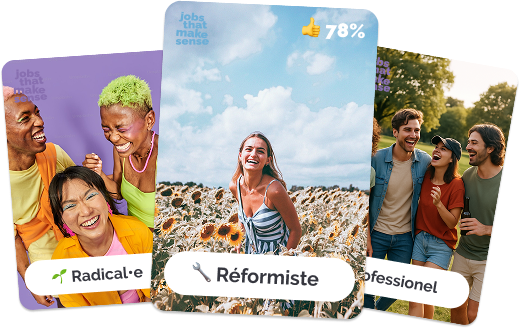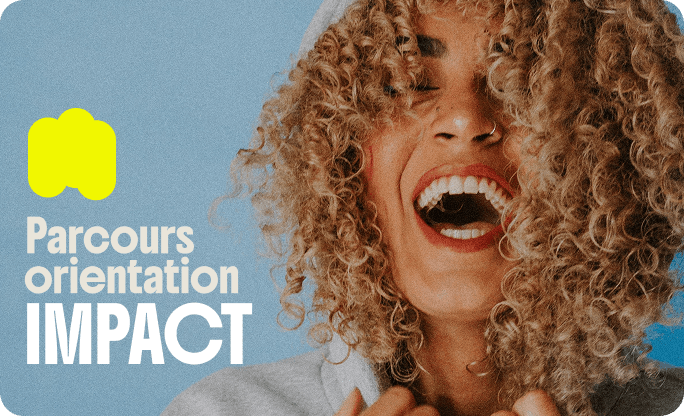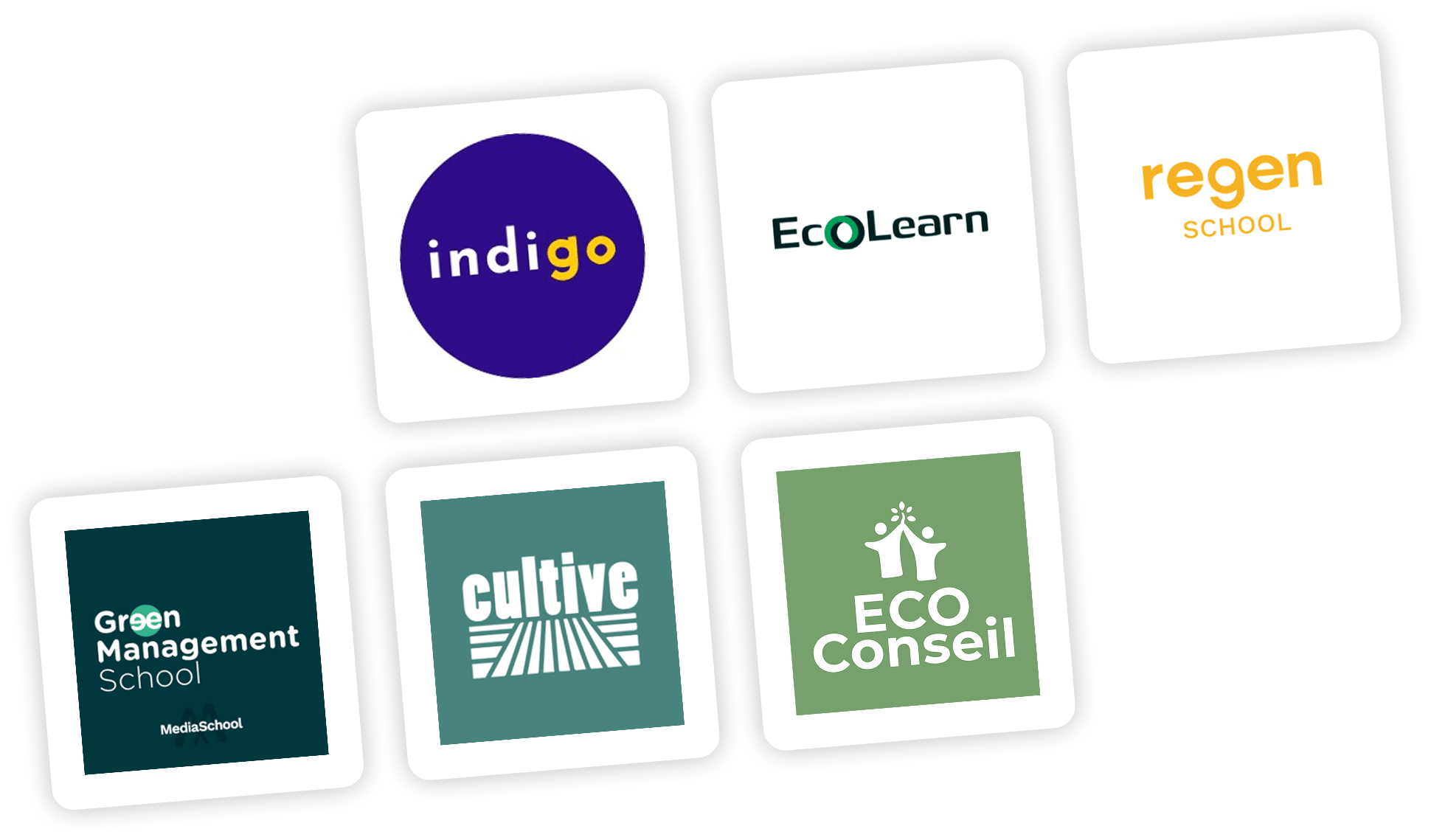Girl Go Green - The story of a former matrixed of the system
Perhaps you've already seen one of her posts on Instagram? Camille Chaudron, aka Girl Go Green, tackles ecology from all angles on her account: she teaches us how to make seedlings, shares her zero-waste tips, her finds for adopting a responsible lifestyle, while raising awareness of biodiversity extinction and other not-so-sexy, but necessary-to-know topics... Especially right now. 🌍 What's more, she takes a fun, no-holds-barred look at the solutions. We love it! For this interview with jobs_that_makesense, we wanted to know Camille's relationship with work. What did she do before transforming her lifestyle? Before launching her Instagram account? How has her view of the professional world changed in recent years? She tells us...
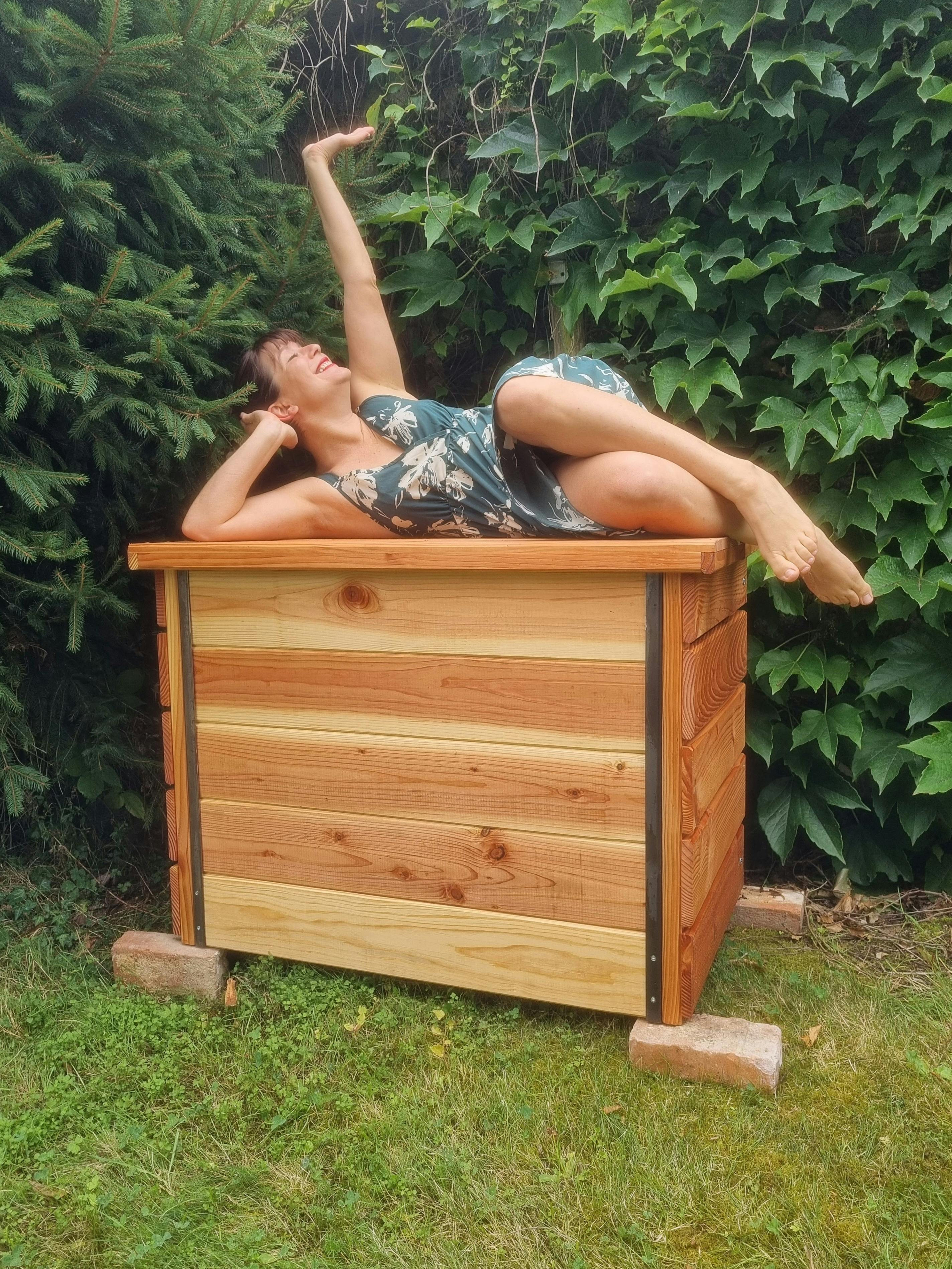
Camille's side steps
When Camille recalls her very first steps towards a more sustainable lifestyle, she recalls shopping in a bulk store in Lille. This first excursion into the world of bulk food came at a time when she was working in marketing for a company in the food industry. Unable to bear seeing her own kitchen cupboards resemble little supermarket shelves, she no longer saw the point of her job. It's more about creating brands than focusing on the quality of the products sold. She remembers her experience in a bulk store well, as... "It was a flop." Proudly walking there, equipped with her many empty jars, she says"I shit on it on the way back, because it weighed a ton!" And concludes that"it's too boring to be green." Not discouraged, however, she is back on track by making her own fabric pouches. What motivates her to take action is the fact "to have a daily life less invaded by capitalism and marketing, and to no longer be part of the problem."
"...I put 8 hours of my energy, creativity and skills, every day, into activities that contribute to maintaining the problem."
Work and cognitive dissonance
Bulk is good, but for her, it's not enough. Camille realizes that there's quite a bit of cognitive dissonance between her job in a consumer goods company, which, she points out, "produced a lot and unsustainably", and her everyday life, in which she transforms all her little gestures to move towards a more ecological lifestyle. Her reflection: "there's no point in transforming my way of life, if I put 8 hours of my energy, creativity and skills, every day, into activities that contribute to maintaining the problem." A problem, which she maintains, by contributing to the development of new products, which most of the time, "create artificial needs". This marketing position was no longer healthy for Camille, so she decided to leave.
Perhaps you've already seen one of her posts on Instagram? Camille Chaudron, aka Girl Go Green, tackles ecology from all angles on her account: she teaches us how to make seedlings, shares her zero-waste tips, her finds for adopting a responsible lifestyle, while raising awareness of biodiversity extinction and other not-so-sexy, but necessary-to-know topics... Especially right now. 🌍 What's more, she takes a fun, no-holds-barred look at the solutions. We love it! For this interview with jobs_that_makesense, we wanted to know Camille's relationship with work. What did she do before transforming her lifestyle? Before launching her Instagram account? How has her view of the professional world changed in recent years? She tells us...

Camille's side steps
When Camille recalls her very first steps towards a more sustainable lifestyle, she recalls shopping in a bulk store in Lille. This first excursion into the world of bulk food came at a time when she was working in marketing for a company in the food industry. Unable to bear seeing her own kitchen cupboards resemble little supermarket shelves, she no longer saw the point of her job. It's more about creating brands than focusing on the quality of the products sold. She remembers her experience in a bulk store well, as... "It was a flop." Proudly walking there, equipped with her many empty jars, she says"I shit on it on the way back, because it weighed a ton!" And concludes that"it's too boring to be green." Not discouraged, however, she is back on track by making her own fabric pouches. What motivates her to take action is the fact "to have a daily life less invaded by capitalism and marketing, and to no longer be part of the problem."
"...I put 8 hours of my energy, creativity and skills, every day, into activities that contribute to maintaining the problem."
Work and cognitive dissonance
Bulk is good, but for her, it's not enough. Camille realizes that there's quite a bit of cognitive dissonance between her job in a consumer goods company, which, she points out, "produced a lot and unsustainably", and her everyday life, in which she transforms all her little gestures to move towards a more ecological lifestyle. Her reflection: "there's no point in transforming my way of life, if I put 8 hours of my energy, creativity and skills, every day, into activities that contribute to maintaining the problem." A problem, which she maintains, by contributing to the development of new products, which most of the time, "create artificial needs". This marketing position was no longer healthy for Camille, so she decided to leave.
Her Instagram debut
Without a professional activity, Camille then found herself in a triple dynamic. "I spent a lot of time on social networks to follow engaged accounts and thus trick my mind, which just wanted to hang out on the networks". Before subscribing to engaged influencers, she described herself as "a passive consumer of the networks", following mainstream, lifestyle accounts and influencers promoting a lifestyle of "opulence, overconsumption and giving a degraded image of women". Engaged accounts are also a way for Camille to go a step further than the zero waste approach. Her second action? Wwoofing, by joining permacultural farms."I got my first taste of applied ecology and an ecological way of life on a daily basis." Indeed, she shares her enthusiasm for this way of life: "I wanted to write down everything I saw and learned, and at the same time, I wanted to show my loved ones, that there are other possible ways of doing things and that we can achieve very simple little gestures." This desire to share with others, marks the beginnings of the Instagram account Girl Go Green! Finally, the third action that drives her, is an entrepreneurial project, which enabled her to get out of salaried employment and job security: "I took this pretext to get out of the company and the ready-made path of the very well-paid executive." This project eventually came to an end, and Camille enters a period of depression linked to personal reasons.

"I was a chick with time on my hands and I was trying to offer my help."
Out of the tunnel of depression
During her depression, Camille is unemployed. During this break, the security of unemployment enabled her to "follow where her instincts take her, listening to what makes her want to get up in the morning." Of course, when you've become accustomed for years to following a set path, time constraints, and a well-defined framework, it's no easy thing to let go! "At first, I had the impression of going off in all directions, but in hindsight, when I do a second reading of this phase, that I post-rationalize, it wasn't so much going off in all directions." Wwoofing, training in French sign language, then in massage, co-writing a mooc on waste in collaboration with Makesense, helping associations like Réseau Vrac or Maison du Zéro Déchet... As soon as a project makes sense to her, and she can contribute her skills, she goes for it! "I was a chick with time on my hands, and I tried to offer my help." Put like that, Camille seems to have given her all during this period, but she makes it clear that her actions were spread out over time:"Sometimes, I'd do just one action during the day, like getting up to go to the recycling center, for example." This life, which didn't seem "proactive" at the time to her, actually enabled her to make"a fertile void, very precious". The fertile void, this action of creating space in one's life to go out and meet what drives us, is an experience she recommends: "if you have the means to do it, basically, the fertile void is starting a journey where you don't know the destination and you're ok with that. It's like going to a party, meeting someone who tells you about a project, it makes you want to join, and off you go! If you have to be at the office at 9:30 the next day, that's the end of the experience. But in times of emptiness, you can dig deeper by joining projects that drive you." She adds, that"of course, you can also just take advantage of this time of nothing, of idleness, to let things emerge." Matrixed in a "Business School X Job Security" system, she realizes that she "never thought otherwise than along this path. I needed nothing, emptiness, for there to be space, silence, for things to emerge that were there, but that I'd never taken the time to listen to, because they were too stifled by everything I had to do!"
Nothingness, emptiness. Isn't all this a bit creepy?
"It made me work on letting go. That's really the hardest part." A period both exciting and terrifying, what makes this fertile void difficult is not only facing one's own fears, but also "taking on all those of others". She gives a few examples...
Her parents' fears:
- "Okay, now you're taking your break, but you're still thinking about what you're going to do next?"
Those of his buddies:
- "A 3-month gap in a resume is fine. But after 6 months, it starts to show!"
This reasoning, she looks at it as something insane from now on: "it's come to this... Telling yourself that your career is over with a 6-month hole in your resume. But it's not. That's what's going to make you a rich person, because you're going to accumulate different experiences." Anxious about the questions she's asked, she ends up answering everyone who asks her what she does:
- "Nothing. I do nothing."
And, indeed, she wasn't doing anything "professionally speaking", at least in the sense we give to the word "professional". For all that, she met a variety of people, forged links, educated herself by going to conferences, and built up her skills. "When you tell people: I don't do anything, there's no grip, you're like a bar of soap."
- "Do you feel like doing something?"
- "No."
- "Are you going to do something?"
- "No."
In Paris, in the evenings, I was always being asked:
- "What do you do for a living?"
I replied:
- "I do my best."
By assuming, she thus dismisses judgments, which ultimately matter little to her. "If you're not able to have a conversation with me beyond my professional activity"she tells herself, "it's not very interesting."
New encounters.
Little by little, Camille is also changing her relationship with the norm. At this point, socializing with people who had followed the same type of studies as her, for whom the norm was the following: "work, be salaried, get stoned at work well beyond unpaid overtime", she began to turn to people in"the same vibe"as her: in multi-activity and who had gone off the rails. "Meeting them allowed me to tell myself that what I was going through wasn't out of the ordinary. For them, the aberration was doing the same job every day from 9am to 7pm." To connect with people who shared the same interests as her and the same vision in their relationship with work, Camille went to numerous events. Many of them were held at Makesense. "I used to show up alone at events. I'd meet people with strong common interests." She also did the Switch Collective skills assessment, which enabled her to connect with people looking for meaning in their work. She signs up for hackathons, evolves in ecolieux, trains in new forms of governance: sociocracy, holacracy... "As soon as I saw something that created a sparkle in me, I went for it!"
What about money?
Among all the activities she undertakes during her unemployment, Camille runs workshops to share her different experiences with the public. She does it for free, until one day someone asks her how much she charges for a workshop. "Oh, my business could be monetized!" she says to herself. "I was building up my business as I went along, and I didn't know what it would look like in 6 months' time. I never thought I'd be able to make a living from it financially, because at the time there wasn't a word to define my activity, apart from media activist, maybe". She does it with passion, without thinking that companies might be interested. "When you're in the right place, at the right time with the right energy in your life and you do what drives you, there's a magic that's created. It's a moment in which you have to let go, trust in life and doors open." This doesn't stop her from having financial anxieties at the outset. At the moment, Camille is once again in a low period, she's lost and doesn't know where she's going. But she's taking a calmer view of this period "I look at it with a lot of tenderness because I've been through it before, about ten years ago. It's very uncomfortable, I have financial anxieties about the future. At the same time, I've been through it before, and I know that if I stick to what's right for me, what's vibrant, and what's close to my heart, I can make it." Trust is Camille's way of letting things happen, especially things she hadn't imagined!
"Really, really don't give a damn about other people's looks!"
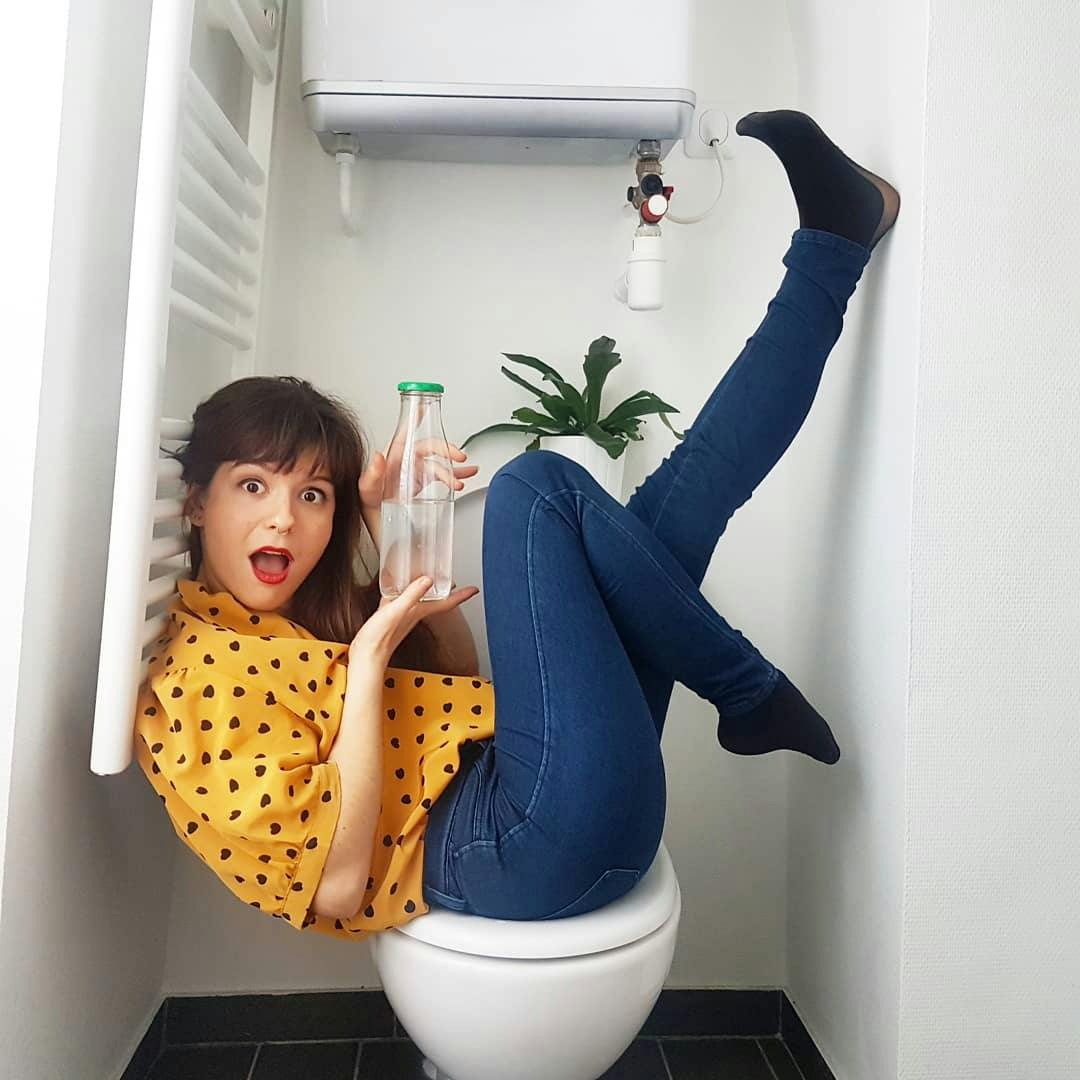
A word to Camille from 10 years ago.
"If I had to talk to the Camille of 10 years ago who's asking herself lots of questions about her path and feels out of step, I'd tell her that she's right, that it's normal to feel the way she does and that there are other ways of doing things. The day she goes down that road, she'll be fulfilled and happy, and it's not just in her head." For her, the most important thing is to go inside ourselves and observe what we care about viscerally. And that takes time, which you find. You also have to try things out, and other people's opinions "really, really don't give a damn! The discredit cast on the unemployed, on those who do little, is a great hindrance according to her, because these people contribute enormously, but otherwise than via professional activity. "When you're interested in the subject of the relationship with work, there are ways of contributing that are different from creating GDP." She makes it clear, of course, that what she's saying is situated because she studied, had a degree and was able to benefit from job security at first.
"It starts with me, I'm trying to deconstruct myself."
Work as a lever for ecological and social transition.
For Camille, because of the time we devote to it, work can be a lever of transition."We need everyone to contribute their energy and brains to a collective co-construction of new ways of living and consuming. To create value differently. When I talk about creating value, I'm talking about links, solidarity, land regeneration..." She also adds that "non-work" also has its place and is also a lever, due to its absence. "Non-work is going to help us in the ecological transition, because we need to decrease, to decelerate. That's going to involve a de-sintensification of economic activity and therefore of work in the sense we understand it today." She allows herself to work less than before:"Every time I start to stress because I'm not in the doing, I'm not working, because I don't have contracts for example, I tell myself that I'm deconstructing my relationship to work." For when she says she does nothing, it's not entirely true. She cultivates her garden, builds a composter, looks after the smooth running of her communal life, helps build dry toilets, goes for walks, looks after her mental health... She insists on this notion of mental health, because, by taking care of it, she "contributes to society by not being a burden on others and not being in this dependency on consumer society." To agree to work less, inevitably deviating from the societal norm that places work at the center of our lives, she constantly self-coaches:"the pressure on this subject is so strong, as if it were the only ultimate goal of fulfilling our lives. I tell myself that it's a constant task to deconstruct this imaginary world." She compares this posture to the one she has taken in her zero waste approach "it starts with me, I'm trying to deconstruct myself" and little by little, by capillarity, she hopes it can be inspiring for others.
Living in a collective to change your relationship with work.
Camille also lives in a flat-share with other people, all of whom have made professional changes. On a daily basis, she is connected to people who inspire her through the way they look at their own lives. She gives the example of a discussion with one of her roommates: "He felt he hadn't had a good month, because he hadn't taken the time to contemplate, to connect with the nature around him, to feel time passing. He's a market gardener. You can say to yourself that he's done a lot of things, that he's transformed his place... But he didn't think it was crazy." When you live in a collective, it also calls into question what we call WORK. Indeed, as Camille explains, the question of participation in community life implies shared tasks: "it's time you're going to put at the service of the collective, it's work. If I'm too focused on my work, in the sense of "my professional activity", and I let it take up a lot of my time, there are lots of things I don't do in the house. What the point of living in a collective in that case?" Cooking for everyone, planting seedlings, stirring the compost, are activities that allow her to take care of the group. It's through this new approach to the use of her time that Camille is changing her relationship with work. For her, it's concrete. The others take care of her, just as she takes care of the group. In fact, she finds fulfillment in the ties she maintains with the people around her, the living, the new experiences that transform her from the inside out. Out-of-the-ordinary experiences that embody realistic utopias;
Find out more
👉 Here is Camille's account, Girl Go Green
